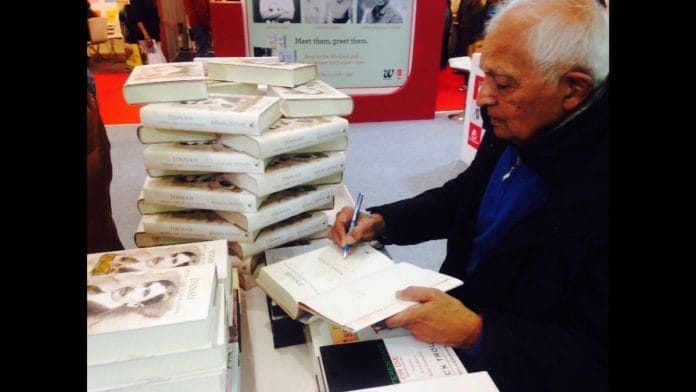It’s often said of successful sports persons witnessing a dip in performance that while their form is temporary, class is permanent. With Kiran Doshi, who passed away Thursday morning, both were permanent. He had class and he was always in form — a career diplomat who could be utterly undiplomatic in a perfectly diplomatic way. Many a foreigner felt the softly lisped out sting of his polished speech.
Once a Chinese person was being rude about how Indians used water for their ablutions. When she was done, Kiran asked with a straight face, “And you madam, you use chopsticks?”
Kiran joined the Indian Foreign Service in 1962 and served in various countries in different capacities, including in the ministry here of course. But that’s something he did for a living.
For the pursuit of happiness, he wrote novels. One of them was in verse. However, the writing all came after retirement. He thought it was not right to pursue another calling when the taxpayer was footing the bill for something else.
Kiran will be remembered as a fine novelist. He wrote three between 1999 and 2016. The last one being Jinnah Came to Our House which won many awards. He was working on a sequel Jinnah, which will now remain unfinished.
He would send me draft chapters sometimes. I would never comment except with the usual platitudes because it would have been presumptuous on my part. He was just too good as a writer.
His first book was called Birds of Passage. The reviews were not very favourable because, as someone who has also written a novel, I can quite confidently say that it’s easy to be needlessly critical.
The book was about how the Ministry of External Affairs functioned those days and the little games that its officers got up to. The wives, too, were present. Kiran’s sardonic style and his mot justes were meant for the connoisseurs. The book was simply too sophisticated.
He followed that up with another one in 2009, Diplomatic Tales. It was a novel but in verse. He asked me to review it, so I did — in verse, too. Here’s an excerpt:
“It is novel because it is a novel in verse,
Sometimes voluble, otherwise terse.
Kiran writes as he speaks
With an endearing lisp
About colleagues
and other sneaks
Who comprise the IFS.
There are four stories in all…
One is about cricket,
Between India and Pakistan
Never has such an event
Been written about with such élan.”
But it was really with his third book, a fat thing about pre-Independence Bombay and built around Jinnah, that raised Kiran’s stature. The writing is so polished and the story so riveting that despite its bulk, I read it in three days flat.
In the two previous books, Kiran hadn’t quite found his rhythm. They were excellent in an awkward kind of way. But in this one, he got into his stride. Everything — the narration, the narrative, the understated tone, the soft irony, and ever-present gentle humour — made the effort stand out.
It is the sort of book many would want to write. It has real class. It’s a huge pity that he wasn’t able to complete the sequel. I think he had written five chapters.
He also published a collection of short stories a couple of years ago. As usual, they are in a class of their own.
Kiran is survived by his wife Razia, who is a doctor, and two daughters. They are not the only ones who will miss him.
The author is a senior journalist and columnist. He tweets @tca_tca Views are personal.
(Edited by Anurag Chaubey)






